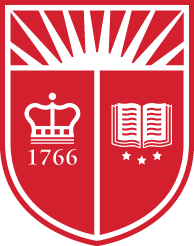
Contact Information
CABM
Office Room #: 103
164 Frelinghuysen Road Piscataway, NJ 08854
Phone: (848) 445-9783
Fang Liu, PhD
Associate Professor
Chemical Biology
Education & Training
PhD - Harvard University, Cambridge, MABS - Beijing University, China
Post-Doctoral Fellowship - Memorial Sloan-Kettering Cancer Center
Research Interests
TGF-ß signal transduction, transcriptional regulation, cell cycle control, and their roles in cancer. Transforming growth factor-ß (TGF-ß) and related polypeptides, including activins and bone morphogenetic proteins (BMPs), constitute the largest cytokine family, possessing fascinating features. They are multifunctional, regulating essentially all aspects of cellular processes. For example, TGF-ß potently inhibits cell proliferation by causing cell cycle arrest at the G1 phase. It is the most relevant physiological inhibitor of cell proliferation. Accordingly, TGF-ß is a potent tumor suppressor at early stages of tumorigenesis. TGF-ß also regulates cell differentiation, adhesion, motility and apoptosis. TGF-ß family members are evolutionarily conserved and play an essential role in the development and homeostasis of virtually every tissue in organisms ranging from fruit flies to humans. Inactivating mutations in several components of the TGF-ß signaling pathways have been found to cause human disorders, such as cancer. TGF-ß signals through transmembrane serine/threonine kinase receptors. It binds and brings together two classes of receptors, the type I and type II receptors. The TGF-ß type II receptor is constitutively active. It transphosphorylates the type I receptor, which then plays a major role in specifying downstream events, leading to various biological responses. Smad proteins transduce the TGF-ß signal from the cell surface to the nucleus. Smads are directly phosphorylated by the TGF-ß family receptor kinases upon ligand stimulation. Following phosphorylation, Smads form heteromeric complexes, accumulate in the nucleus, and regulate transcription of a variety of target genes, such as cell cycle regulators. Importantly, Smads are tumor suppressors. They are mutated or their expression levels are altered in several types of cancers. Our current research is focused on the TGF-ß/Smad signal transduction, transcriptional regulation, cell cycle control, and their roles in cancer and fibrosis.